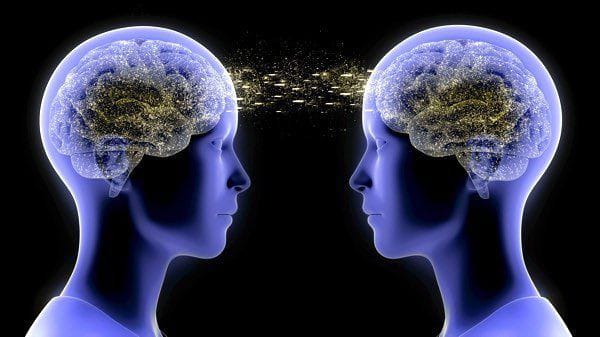
Before starting the discussion on the interaction of technology and philosophy with each other, we must first learn about philosophy and technology in detail to better understand their interconnections.
By hearing the word philosophy, many of us (including me) unconsciously think about the cliched concept of philosophy from ancient Greek times, and we are right to some extent too. So, first, let us explore philosophy and its important branches in detail.
Philosophy:
Philosophy originated from the Greek words “philo,” which means love, and “sophia,” which means wisdom, and is called the love of wisdom. This beautiful composition made from Greek words is a study of questions about life, logic, analysis, rightdoings and wrongdoings, perspectives, existence, understanding of nature, etc. Philosophy mainly focus on learning, knowledge, generating
thoughts and views on different angles of life.
There are many branches of philosophy grouping it into different categories as following:
Metaphysics: This branch focuses on questions about existence, the nature of existence, and relations between different existing things. There are two components metaphysics is made up of: cosmology and ontology. Cosmology consists of questions about nature, development, and origin of existence, whereas oncology deals with relationships between these existing things.
Epistemology: This branch of philosophy covers the nature, origin, scope, limitations, and types of knowledge.
Axiology: This Greek term consists of two words “axios” means values, and “logos” means study, “study of values.” It includes questions about categorization and nature of values such as what kind of things and phenomena have value.
Political Philosophy: Political philosophy is the philosophical study of nature and scope of government, laws, civilian rights, and relationships between them.
Philosophy of Religion: The philosophy of Religion involves deep thinking and consideration about one’s beliefs, spiritual practices, obligations, etc. Philosophy in religion helps us to improve our lives according to our Creator’s will and orders.
Philosophy of Language: The philosophy of language deals with nature, origin, scope, differences of languages, and relationships between different languages and their speakers. It includes concepts, structure, words, and sentences, and how they come into existence or are taken from other languages.
Philosophy of Mind: This branch deals with queries and curiosities about the mind, and its functions, capabilities, vastness, and many more.
Philosophy of Science: The philosophy of science studies about fundamentals of science such as how science works and how we experiment on different things and get reliable results.
Aesthetics: Aesthetics, as most people know, is concerned with beauty and taste. This branch of philosophy deals with the nature of beauty, which is present in every form, whether art or music, nature or human beings, pain or ease. Each and everything that makes us feel some sort of beauty and peace is aesthetics.
Ethics: Ethics is also called moral philosophy. It deals with questions and ideas about what is wrong and what is right to do morally, how to behave in society, and how to prevent causing any emotional or mental harm to anyone.
Logic: This branch is based on valid reasoning and ideas instead of mere vain thoughts and perspectives about any phenomena. It requires a lot of critical thinking, research, and analysis.
Technology:
In simple words, technology is a practical application of scientific research and knowledge to make changes and advancements in the modern world. It keeps evolving day by day with new innovative ideas and inventions. Technology has made our everyday lives much easier and better which includes many aspects such as home chores, communication, travel, transfer of money, education, health, industrial work, etc. Things that used to be tough and required hard work and time can now easily be done with ease and in less time with human-like proficiency and skill. Modern tools and machines have made it easier for workers to work in industrial areas with less effort and more work in less time, resulting in relief for the labor class. Education has been providing with more comfortable facilities, which mainly include e-learning platform facilities, through which anyone can achieve countless skills, training, degrees, and certifications in his or her desirable field, which facilitates those people, particularly students who cannot attend education and skills far away from their homes due to many reasons, or those who want to attend degrees and courses programs from the top-notch universities and institutes around the world, to easily avail their certificates and degrees from home. Amazing. Isn’t it?
Furthermore, the major aspect of change technology has made is health! Medical technology has made our lives something more than comfortable and safe. Take an example of diagnostic tools such as MRI, CT scanner, X-ray machine, blood pressure and sugar level monitors, modern wearable fitness trackers for heart rate monitoring, etc.; these devices have been used for instant diagnosis of several serious illnesses, and for treatment purposes, equipment like surgical instruments, dialysis machines, ventilators, laser treatment for
various diseases, and most importantly, in gynecological cases, many women and children can be saved from any harm or loss of life due to technological advancements.
There are various areas where technology is rooted as its own field which are as follows:
• Information Technology: Information Technology involves telecommunications, computers and other communication gadgets,
storage and retrieve of data, etc.
• Renewable Energy Technology: It involves generating sustainable energy or powers through water, solar, wind, and waste.
• Nanotechnology: It involves fields such as medicine and electronics, to develop new machinery, medicines, and devices by manipulating small atoms and molecules.
• Biotechnology: Biotechnology is a blend field of biology and technology, aims to improve environment, agriculture, and healthcare.
• Artificial Intelligence (AI): Artificial intelligence, also known as AI, is the most recent and advanced field of technology that has highly advanced features such as content development, creativity, animation, reality dynamics, and more. This field has made digital skills a lot easier than ever.
No doubt, technology has made our lives easier and safer, and with continuous evolution, it can make our lives more comfortable.

Philosophers and their Views about Technology:
After learning about philosophy and technology in depth, I want to present an overview of some philosophers whose philosophies were deeply connected with technology.
Here is a detail of few philosophers:
Jacques Ellul: Jacques Ellul presented a more critical and alarmist view of technology. He contended that technology, or what he referred to as “technique,” has gained its own impetus, becoming independent of human control. Ellul’s book The Technological Society argued that technology governs not just machinery and industry but also social, political, and cultural life. He was concerned that the need for efficiency and optimization in all aspects of life leads to conformity and limits human freedom. According to Ellul, technology imposes a “technological imperative,” which means that whatever can be done technologically will be done, regardless of the ethical or human consequences. He regarded humans as becoming increasingly impotent in the face of technological dominance, with society adjusting to meet the requirements of technology.
Jacques’s theories remain helpful in conversations about technology’s autonomy and impact on society, as well as moral issues in technological advancement.
Donna Haraway: Donna Haraway’s concept of the cyborg, a human-machine hybrid, provided a new feminist perspective to the study of technology. In A Cyborg Manifesto, Haraway used the cyborg as a metaphor for breaking down traditional barriers, particularly those between humans and non-human beings, nature and culture, and male and female. She suggested that the growing reliance on technology weakens these traditional contradictions, allowing for new ways of thinking about identity and power. Haraway’s work uses feminist theory, science fiction, and technoscience studies to challenge mainstream gender and identity beliefs. She was particularly interested in how biotechnology and information technology blur the distinction between biology and technology, creating opportunities to reconsider what it means to be human. Haraway’s concept of the cyborg was optimistic, as she believed that technology might be used to remove social injustices and restricted gender norms.
Her work paved the way for posthumanist views, which challenges human- centered ideas in an increasingly technological society. Haraway’s concepts continue to be relevant in conversations about the body, gender, and identity in biotechnology and computer science.
Lewis Mumford: Lewis Mumford, a historian and philosopher, provided a more nuanced perspective on technology, distinguishing between “authoritarian” and “democratic” technologies. Authoritarian technologies are massive, centralized systems, such as factories or power plants, that limit human autonomy by consolidating authority in the hands of a few. In contrast, democratic technologies are smaller and more decentralized, such as windmills or small-scale renewable energy systems, empowering individuals and communities. Mumford contended that modern industrial society is controlled by authoritarian technologies that prioritize efficiency and control over human wants and values. He criticized the “mega machine,” a term he used to describe bureaucratic and technocratic institutions that treat people like cogs in a machine. Mumford argued for a more “organic” connection with technology, one that integrates technology into human life in ways that promote creativity, freedom, and community rather than suppressing them.
His work has influenced conversations regarding sustainable technology and the importance of human-focused approaches to technical development.
Bruno Latour: Bruno Latour challenged accepted notions about the distinction between humans and technology. He created actor-network theory (ANT), a concept that views both humans and non-humans (such as machines, animals, and objects) as actors in the networks that generate society. According to Latour, technology is not a passive instrument used by humans but rather an active participant in creating human interactions and societal systems. In his book We Have Never Been Modern, Latour argues that modernity is based on a false dichotomy between nature and civilization, human and non-human. He believed that we have always lived in a hybrid environment in which humans and non-humans interact and evolve together. His work challenged the modern assumption that science and technology could disconnect humanity from the natural environment, arguing that we should reconsider our relationship with the
technologies we develop.
Latour’s views have had a considerable impact on the fields of science and technology studies (STS), environmental humanities, and the future of humanity.
Herbert Marcuse: Herbert Marcuse, a member of the Frankfurt School of Critical Theory, questioned the function of technology in capitalist societies. Marcuse stated in his book One-Dimensional Man that technology has been widely used in modern industrial civilizations to reinforce social control and obedience. He argued that technical rationality—the need for efficiency and control in both economic and social systems—restricted human freedom and creativity. Marcuse termed modern civilizations as “one-dimensional,” implying that technical and economic systems that encourage homogeneity and inactivity discourage critical thought and resistance. He contended that people in these cultures become docile, accepting the technical systems imposed on them without examining their broader social and ethical consequences. Despite his critique, Marcuse also saw potential for technology to liberate people if it were used to serve human needs and promote human emancipation rather than domination. His work remains influential in critical theory, particularly in debates about the relationship between technology, capitalism, and social control.
Marshall McLuhan: Marshall McLuhan was particularly interested in how media and communication technology influenced human perception and society structure. He is most known for coining the expression “The medium is the message,” which emphasizes that the form of media (the medium) has a greater impact on human experience than the substance it conveys. McLuhan views
media as extensions of human senses and powers. For example, the telephone improves our ability to converse across great distances, whereas the internet expands our capacity for information sharing. He defined media as “hot” or “cool” depending on the extent of audience interaction required—hot media, such as film, are immersive, but cool media, such as television, need more active participation.
McLuhan’s theory of media environments proposed that each new medium alters how people think, interact, and perceive the world. He anticipated the establishment of a “global village” through electronic communication technology, long before the internet and social media were common. McLuhan’s work is essential to media studies, and it continues to influence our understanding of how communication technology influences human consciousness and social structures.
Martin Heidegger: Martin Heidegger saw technology not simply as a collection of devices but as a basic method of illuminating the world. He believed that each century had a unique method of comprehending and engaging with reality and that current technology brings a new way of seeing the world, which he dubbed “enframing.” In this way of thinking, everything, including nature and
humans, is a resource to be controlled and exploited. Heidegger argued that this worldview deprives us of a deeper, more meaningful interaction with the world, reducing it to just raw material. He distinguished between traditional, pre-modern technologies that interact with nature (like a windmill) and contemporary industrial technologies that dominate and control nature (like a power plant).
While Heidegger did not completely condemn technology, he was concerned about its potential to limit human freedom by reducing us to mere operators in a mechanistic system. His work is vital for comprehending the philosophical implications of modern technology, and it continues to influence conversations concerning the impact of technical advancement on human existence.
Hans Jonas: Hans Jonas was a German philosopher who investigated the ethical implications of technology, especially in terms of the environment and human responsibility. His most significant essay, The Imperative of Responsibility (1979), addresses modern technology’s growing power and ability to destroy both people and the natural world. Jonas contended that traditional
ethics, which concentrated on interpersonal relationships in the present, were insufficient to handle the long-term effects of technological activity. He proposed an “ethics of responsibility” that requires humans to consider the influence of their technical developments on future generations and the environment. Jonas’ main point was that humans must act with caution and foresight, especially given the potentially catastrophic power of modern technology (e.g., nuclear or biotechnology). He particularly stated the ethical imperative: “Act so that the effects of your action are compatible with the permanence of genuine human life
on earth.”
Jonas’ work is particularly relevant to environmental ethics and sustainability concerns, emphasizing the moral responsibility that comes with technological power.
Influence of Philosophy and Technology on Each Other:
Just like many other fields interconnect with each other, technology and philosophy are also like that; they both go hand in hand together. Both of the fields have such a great impact on each other that you cannot imagine technology with philosophy and vice versa. As philosophy is all about deep thinking, ideas, and questions, it strongly impacts innovations and technological advancements. No one can reach the point of producing something productive and creative without utilizing his thoughts, questions, and perspectives about the world and its existence and the relations between worldly things. Different branches of philosophy have different impacts on the modern technological world.
Impact of Philosophy of Religion on Technology: Strong dedication and devotion towards religious views create a sense of obligation in oneself, through which one prevents himself or herself from any negative action in tech work that can cause harm to society or its people. Along with that, religious dedication also helps in creating devotion towards serving humanity; many people dedicate their works for the pleasure seeking of God to serve His people by working hard in tech fields. In this way, tech fields hold dedicated and committed individuals who strongly devote themselves to working hard.
Impact of Ethics on Technology: Ethics, a main branch of philosophy, which is basically based on moral values, incorporates in technological advancements to secure individuals’ privacy and in maintaining ethical guidelines to prevent any kind of privacy breaching. For that reason, there are some institutes that are working to make the tech world secure, such as cybersecurity, which works for protecting users’ data and personal information, ethical hacking and recovering methods to save users from cyberattacks and data hacking, and also use techniques to protect hacking and privacy breaching.
Impact of Philosophy of Science on Technology: Just like deep thinking, queries, and curiosities always lead to great results; strong thoughts and analysis about fundamentals of science always lead to effective discoveries and researches. The more creative and critical your philosophies about phenomena will, the more you will be able to excel in your experiments and discoveries.
Impact of Technology on Philosophy of Mind: Developments in neuroscience and artificial intelligence (AI) have caused a lot of changes in perspectives and thoughts about the mind. It has changed the insights about how the brain works, how consciousness, unconsciousness, and subconsciousness work in the human mind, and how different elements affect human psychology, etc.
Impact of Technology on Communication and Knowledge: Modern technological advancements and telecommunication sources have benefited philosophers a lot. Now, philosophers can more easily share their ideas, thoughts, knowledge, and analysis on different areas of life, which can spread to a wide range of people just via the internet and portable gadgets. In this way, the thoughts and ideas of an individual can easily be shared worldwide.
In conclusion, technology and philosophy are both inseparable; neither technological advancement can be made without philosophical points of view, as you can see yourself by reviewing the above-mentioned philosophers’ ideas and works in many aspects of life, nor philosophical fields can be prolonged without the involvement of technological modifications.
Many of you would have been considering philosophy as a cliched subject or concept, as it originated from an earlier Greek period, but it is not like that. Although philosophy is ancient and the oldest field, it has been evolving since ages, from the time of Aristotle, Plato, and Socrates to the modern 20th century’s philosophers such as Donna Haraway, Luciano Floridi, Nick Bostrom, etc.
I hope many of you have modified your concept of philosophy after reading about these interesting things about philosophy and the interconnection between technology and evolving philosophy. Have you?


Blogger
